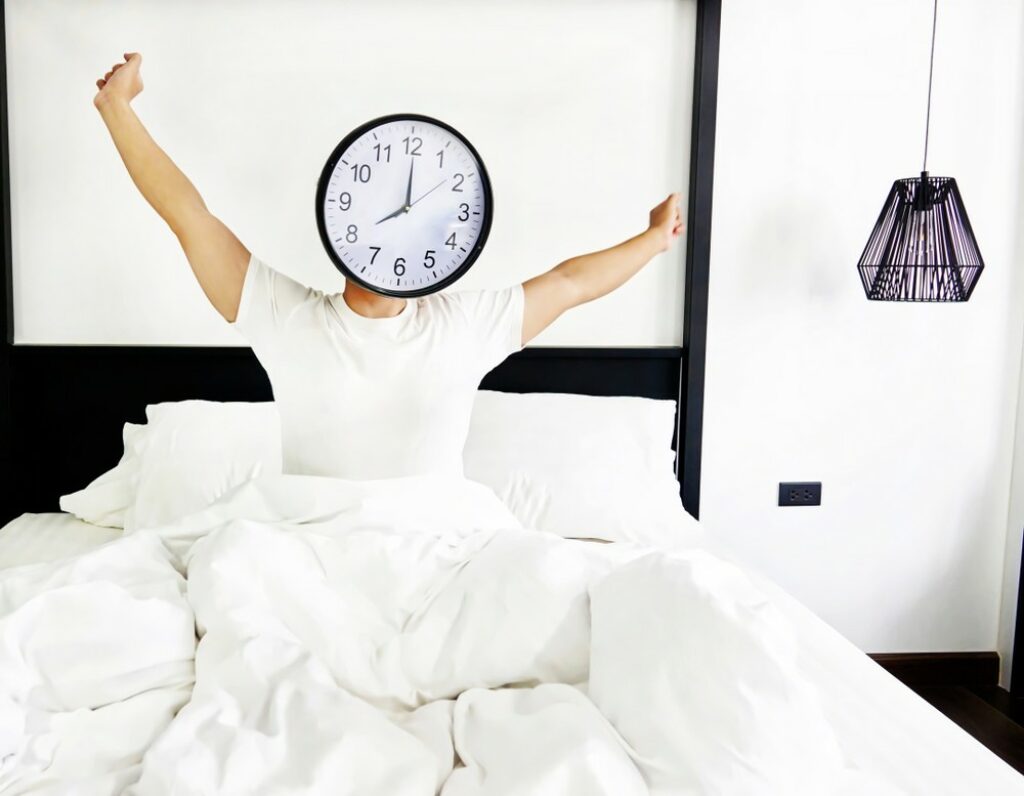
Improve Sleep Habits
While a proper diet, good exercise and positive lifestyle are all important towards overall health, so too is getting enough restful sleep. For a growing number of people however, this proves to be elusive.
Related Topics (Sponsored Ads):
Sleep is an essential aspect of overall health and well-being, yet many individuals struggle with achieving quality and quantity of sleep. Fortunately, there are various lifestyle changes, habits, and non-medical sleep aids that can significantly improve sleep. In this guide, we will explore seven key areas to help you enhance your sleep quality and quantity, along with insights into non-medical sleep aids and supplements.

Establish a Consistent Sleep Schedule
One of the most effective ways to improve sleep quality and quantity is to establish a consistent sleep schedule. This involves going to bed and waking up at the same time every day, even on weekends. By maintaining a regular sleep routine, you can regulate your body’s internal clock, known as the circadian rhythm. This allows your body to anticipate when it’s time to sleep and wake up, promoting better overall sleep quality. When you maintain a consistent sleep schedule, you align your body’s natural sleep-wake cycle, making it easier to fall asleep and wake up feeling refreshed.
Create a Relaxing Bedtime Routine
Developing a relaxing bedtime routine can signal to your body that it’s time to wind down and prepare for sleep. This routine may include activities such as taking a warm bath, practicing meditation or deep breathing exercises, reading a book, or listening to calming music. By consistently engaging in these relaxing activities before bed, you can train your body to transition into a state of relaxation, making it easier to fall asleep and stay asleep throughout the night. A consistent bedtime routine prepares your mind and body for sleep, reducing the time it takes to fall asleep and improving the overall quality of your sleep.
Optimize Your Sleep Environment
Your sleep environment plays a crucial role in determining the quality of your sleep. Ensure that your bedroom is conducive to a good night’s rest by optimizing factors such as temperature, lighting, and noise. Aim to keep your bedroom cool, dark, and quiet, as these conditions can promote better sleep. Additionally, invest in a comfortable mattress and pillows that provide adequate support for your body, as physical discomfort can contribute to sleep disturbances. Creating an optimal sleep environment can minimize disruptions and help you achieve a more restful and undisturbed night’s sleep.
Limit Exposure to Electronic Devices
Electronic devices emit blue light, which can interfere with the body’s natural production of melatonin, a hormone that regulates sleep-wake cycles. Limiting your exposure to electronic devices, such as smartphones, tablets, and computers, in the hour leading up to bedtime can help signal to your body that it’s time to prepare for sleep. Consider implementing a “no-screen” policy in the bedroom to create a technology-free zone that promotes relaxation and better sleep. By reducing exposure to electronic devices before bedtime, you can minimize the impact of blue light on your circadian rhythm and improve your ability to fall asleep and stay asleep throughout the night.
Manage Stress and Anxiety
Stress and anxiety can significantly impact the quality of your sleep. Engaging in stress-reducing activities, such as yoga, tai chi, or mindfulness meditation, can help calm the mind and relax the body, making it easier to fall asleep. Additionally, practicing stress management techniques throughout the day, such as deep breathing exercises or taking short breaks to rest and recharge, can help prevent accumulated stress from interfering with your ability to sleep at night. By actively managing stress and anxiety, you can create a calmer and more relaxed mental and physical state, facilitating better sleep quality and overall sleep satisfaction.
Consider Non-Medical Sleep Aids and Supplements
In addition to lifestyle changes and habits, certain non-medical sleep aids and supplements can provide support in enhancing sleep quality and quantity. Melatonin supplements, for example, may be beneficial for individuals who experience difficulty falling asleep due to disruptions in their natural melatonin production. Melatonin is a hormone that helps regulate the sleep-wake cycle, and supplementing with it can help signal to the body that it’s time to sleep. Valerian root is another herbal supplement that has been traditionally used to promote relaxation and improve sleep. It can help calm the nervous system and reduce the time it takes to fall asleep, contributing to overall sleep quality.
Seek Professional Guidance if Necessary
If you consistently struggle with sleep despite making lifestyle changes and trying non-medical sleep aids, it may be beneficial to seek professional guidance. Consulting with a healthcare provider or sleep specialist can help identify any underlying sleep disorders or other health conditions that may be impacting your ability to sleep well. They can provide personalized recommendations and treatment options to address your specific sleep concerns. Professional guidance can help identify any underlying issues that may be contributing to sleep difficulties, and provide targeted interventions to improve your sleep quality and overall well-being.
Conclusion
Achieving optimal sleep quality and quantity involves a combination of lifestyle changes, habits, and, in some cases, non-medical sleep aids and supplements. By establishing a consistent sleep schedule, creating a relaxing bedtime routine, optimizing your sleep environment, limiting electronic device exposure, managing stress and anxiety, considering non-medical sleep aids, and seeking professional guidance if necessary, you can significantly improve your sleep. Remember that improving sleep is a journey, and it may require patience and persistence to find the strategies that work best for you. With dedication and the right approach, you can enjoy the benefits of restful and rejuvenating sleep.




